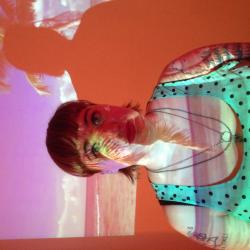Hello Darkness, My Old Friend
The winter solstice brings on the return of daylight, but at such a glacial pace that by the end of January, the darkness somehow feels more intense. Dark Music Days is a cultural star that shines through, illuminating the doldrums of our deepest winter with the brightest talent in Icelandic contemporary music.
The country’s leading contemporary music festival is now back for its 43rd year, taking place January 24 to 28. Music industry veteran Ásmundur Jónsson has served as artistic director since 2020 and is completing his tenure with this edition.
“The festival seeks new ways to create and communicate with the past, present and future,” says Ásmundur. “The main point of the festival is to celebrate contemporary music with the aim to give it a spotlight in Icelandic society. Despite the niche society of contemporary music, the repertoire is extensive, diverse, full of insightful messages and interesting imagination.”
The festival was established in 1982 by the Composers’ Rights Society of Iceland (STEF) who continue to own and operate the festival to this day.
“The main purpose in the beginning was the composers having their own music performed,” Ásmundur says regarding the festival’s start. “It was, I mean, it’s always a fight to get your pieces performed. You have to have a platform. It has developed a lot since the early days of the festival. At that time, the performances were more traditional in that a pianist or orchestra would perform a composer’s work and he was in the audience. That was how we experienced contemporary music through the 20th century.”
With shifts in composition techniques, technological possibilities and diversity of composers, he says that the landscape of this scene has shifted into something more innovative and groundbreaking.
“Looking back in recent years the production of many of the events have become more technical and the visual requirements are often demanding. ” he says. “The interdisciplinary development of different artistic forms like films, music, paintings, mean all of these things are more visible. You have people who are looking into the space to create music within the specific surroundings.”
Along with changes in locale and performance format, the festival retains its core principles and key players from its inception. Dark Music Days consistently presents collaborative projects with larger ensembles like the Iceland Symphony Orchestra, Caput Ensemble and the Reykjavík Chamber Orchestra.
Among the more than 20 events in this year’s edition, there are significant concerts with the younger generation of musicians still in their education, such as the Reykjavík College of Music and the Reykjavik Academy of Singing. The programme also highlights works by the Icelandic Love Corporation in collaboration with the ISO, the R • O • R collaboration between Gyða Valtýsdóttir and Úlfur Hansson, and a focus on the works of Pauline Oliveros.
As Ásmundur wraps up his time as artistic director, despite its early interruption by the COVID-19 pandemic, he reflects both fondly and with ongoing ambition.
“My aim was to open up the festival in a broad sense,” he says. “I wanted it to be more international, though never forgetting that the core should always be Icelandic music.
“Then came COVID-19 and the first full festival I directed was almost purely Icelandic. During the time I have worked on Dark Music Days, I have to admit that my vision has not come true but I’m happy nonetheless. There are so many great moments I have experienced during this journey.”
Buy subscriptions, t-shirts and more from our shop right here!


















